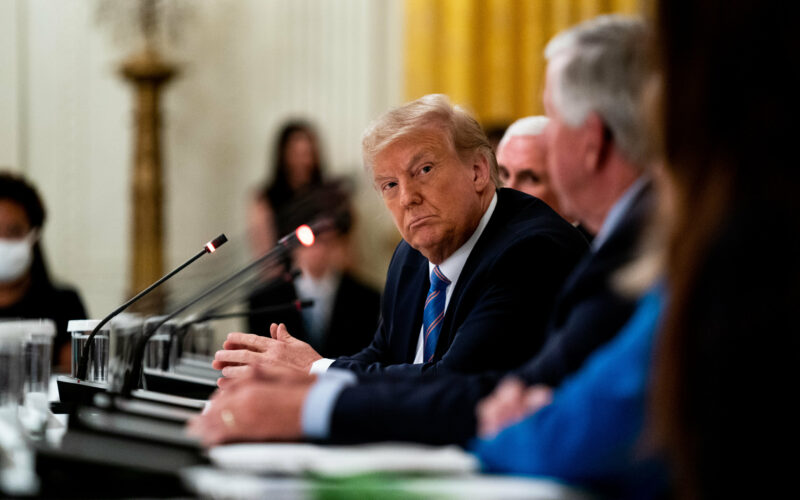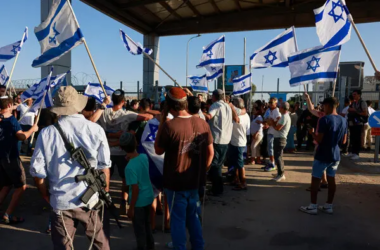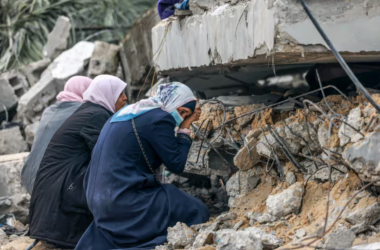The trial over hush money payments involving former US President Donald Trump has commenced, triggering the need for a jury selection process. However, assembling a panel of twelve jurors has proven to be challenging.
After years of investigation and weeks of delays, the criminal trial against former US President Donald Trump began on Monday. Hundreds of New York residents of varying ages were summoned to serve as potential jurors to decide on the case. On Monday, 96 candidates were brought into the courtroom.
However, the selection of the twelve jurors and their six potential alternates proceeded slowly. More than half of the 96 candidates expressed that they could not be fair and impartial toward Trump. At least nine others raised their hands when Judge Juan Merchan asked if they could not participate for another reason and were promptly dismissed.
Judge Merchan emphasized the importance of prospective jurors being able to “set aside personal feelings or biases” and make a decision “based on the evidence and the law.”
The remaining potential jurors, who believed they could do so, had to answer 40 questions about their personal backgrounds, media consumption, hobbies, and their attitudes toward Trump. Another woman was excluded when she responded simply “Yes” to the question of whether she had a strong opinion about the former president.
Based on the responses of potential jurors, attorneys can request the judge to exclude them “for cause.” Additionally, attorneys can peremptorily challenge ten potential jurors and two potential alternate jurors without providing reasons.
At the end of the first day of the trial, only about a third of the 96 invitees remained. The day ended without jurors being selected. The selection process is set to continue on Tuesday. The arduous ceremony illustrates the difficulty in “selecting an impartial panel in a city where the defendant is widely loathed,” wrote the New York Times.
Even before the trial began, Trump complained that he would not receive a fair jury in Manhattan, where the jurors must reside.
His trial marks the first against a former US president and occurs amid ongoing election campaigns. According to the court, the trial could last up to eight weeks. If convicted, Trump faces a potential multi-year prison sentence, which could also include probation.
“It’s a hoax. It’s a political witch hunt. It goes on forever,” said the 77-year-old after leaving the courtroom.
The former US president had tried everything to delay the start of the trial but faced repeated setbacks. On Monday, the judge dismissed another motion from Trump’s lawyers. They claimed that Judge Merchan was in a conflict of interest and therefore needed to be replaced.
The charges against Trump were brought by a grand jury. They accuse him of falsifying business records related to a hush money payment to porn star Stormy Daniels before the 2016 election. Trump’s former lawyer Michael Cohen allegedly paid the woman, whose real name is Stephanie Clifford, $130,000 to keep silent about a sexual encounter with Trump, which she claims occurred in 2006.
Trump denies the affair but admits to having Cohen reimburse her. His lawyers argue that these were “legitimate legal expenses.” Non-disclosure agreements between two parties are not inherently illegal. However, Trump is accused of unlawfully recording the payments, attempting to conceal them illegally, and thereby trying to cover up other violations of the law.
In the event of a conviction, Trump also faces political consequences: a tight race against incumbent Joe Biden is expected in the November election.
The trial in New York is the first of four criminal proceedings against Trump. Legal experts suggest that the other three cases are more serious than the alleged hush money payments: Trump is accused of involvement in election fraud and unlawful handling of confidential documents. However, these trials have been postponed. Trump has pleaded not guilty in all four cases, arguing they are politically motivated.








